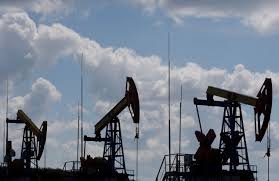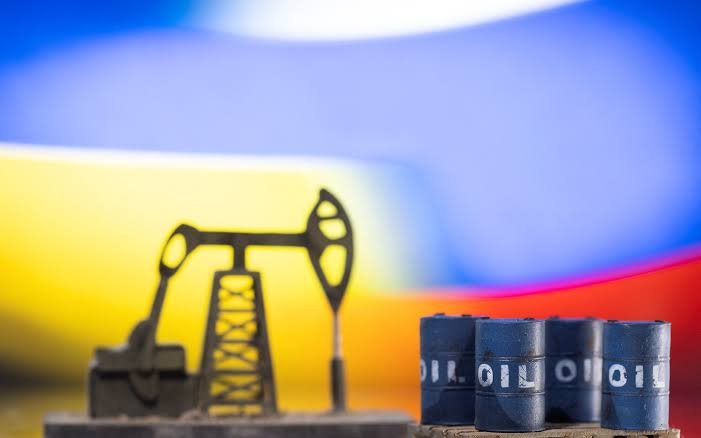Ukrainian allies seek to set a ceiling on the price of Russian oil. The issue is that they are unable to agree on a figure that would genuinely put pressure on the Kremlin.
The largest countries in the West concurred earlier this year to set a price restriction on Russia’s most valuable product, and they promised to work out the specifics by early December. By limiting the supply of energy, the action aims to decrease inflows into President Vladimir Putin’s war fund without placing additional strain on the world economy.
However, nations are still negotiating over the location of the cap as the deadline draws closer.
Russian oil could be restricted at between $65 and $70 per barrel, according to media reports from a meeting of European diplomats this week. Although this range is debatable, it is close to the price of Russian crude on the market right now. That would result in a minimal impact on the supply as well as minimal suffering for Russia.
Helima Croft, head of commodity strategy at RBC Capital Markets, said that at this price, the focus is on reducing inflation rather than cutting Russian revenue.
Russian Urals crude was trading at slightly over $70 per barrel at the beginning of the month, roughly $24 less than Brent, the global standard.
Lowering the price, though, might make the global oil situation worse, especially if Russia responds in kind. It would increase fuel prices if supply fell more drastically than anticipated at a time when nations like the United States, Germany, and Japan are eager to bring inflation under control.
According to Putin, Western proposals to impose oil price ceilings would have “severe consequences” for the energy markets.
Is the price reasonable?
According to Ursula Von der Leyen, president of the European Commission, “we will very soon establish a global price restriction on Russian oil with the G7 and other important partners.” Speaking on oil price caps, US President Joe Biden said they are “in play.”
However, the length of the policy debate emphasizes how difficult the endeavor is.
Prior to December 5, when Europe will impose an embargo on Russian crude shipments by sea, nations seek to negotiate an agreement. This is due to the fact that the EU sanctions package forbids offering insurance and other services to ships transporting Russian petroleum.
It would be more difficult for Russian clients like China and India to continue importing millions of barrels daily as a result. The majority of crude transport insurance companies have their headquarters in Europe or the United Kingdom, which works closely with Brussels.
The oil price cap seeks to change this practice. Tankers delivering Russian oil may be given shipping and insurance services as long as the price of the oil is at or below the ceiling set by Western countries.
The European Commission stated that this “will assist to further decrease Russia’s earnings, while maintaining the stability of the global energy markets through sustained supply.” Thus, at a time when high expenditures, particularly higher fuel prices, are a major concern, it will also aid in addressing inflation and maintaining stable energy costs.
But really deciding on a price has been challenging. Poland and other eastern European nations are in favor of a lower cap, pointing out that it costs Russia considerably less to pump a barrel of oil than the $65 to $70 range. Moscow might thus continue to profit from its crude shipments if there was a price ceiling between those two levels.
The cost of production for Russia, according to the consultant Rystad Energy, ranges from $20 per barrel to $50 per barrel, depending on how the calculations are crunched.
Additionally, the Russian budget predicts that in 2023, oil will be exported at an average cost of around $70 per barrel. It could largely keep spending as anticipated if it can obtain that price in the market.
Volodymyr Zelensky, the president of Ukraine, stated on Friday that the cap ought to be set at $30.
“We’ve heard that there are plans to set the barrel cap at $60 or $70. He said this through video link at a seminar in Lithuania, “Such remarks sound more like a surrender [to Russia].
Russia, though, can lash out and reduce its supply if the price is too low. Given that Russia’s exports are anticipated to total 9.7 million barrels per day by 2022, according to the International Energy Agency, this could cause market turbulence. This is more than in 2021.
Unavoidable disruption
There are more concerns besides only the price level. Setting a static price cap range could be logistically challenging because it would need to be updated frequently, as opposed to creating a floating discount for Russian crude based on Brent’s price.
Oil traders are also dubious about the measure’s ability to be put into effect, claims Giovanni Staunovo, an analyst at UBS. He anticipates that participants in transactions will only look for loopholes.
He stated, “There is a strong desire to do something.” However, the truth will be different.
According to some commentators, Europe’s oil embargo will eventually be more significant than the price restriction. About 2.4 million barrels of Russian crude have been purchased daily by the bloc, and Moscow will soon be obliged to look for new buyers.
It will probably lower output in order to decrease extra barrels. That might increase oil prices despite everything.
Oil production in Russia is likely to be severely reduced as a result of the EU oil embargo and the proposed price cap on Russian oil, according to a letter from Commerzbank to clients. The cost of Brent oil should increase as a result in the upcoming weeks.


